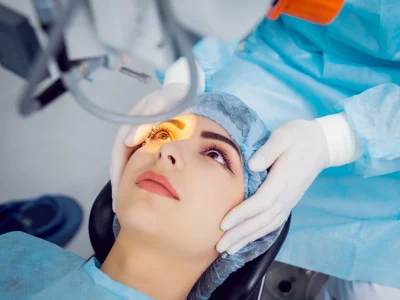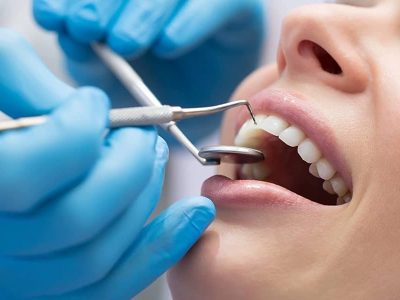Understanding The Sinuses And Their Role In The Body
The sinuses are air-filled cavities in the bones of the face and skull located around the nose, eyes, and cheeks. They help filter, warm, and humidify the air we breathe. Sinuses allow air and mucus to flow smoothly when functioning properly, keeping our nasal passages clear. However, inflammation or blockage, known as sinusitis, can lead to symptoms like headaches, facial pain, and congestion. Interestingly, sinus problems can also contribute to back pain, highlighting the need to address both conditions together for effective treatment.
Common Causes Of Sinus Problems
Sinus problems can stem from various environmental and physiological factors. Allergies, one of the most common causes, trigger inflammation in the sinus cavities due to irritants like pollen, dust, and pet dander, leading to congestion and discomfort. Infections, whether bacterial or viral, can also cause mucus buildup and sinusitis, which may be acute or chronic. Chronic sinusitis often requires ongoing treatment. Structural issues, such as a deviated septum or nasal polyps, can obstruct sinus drainage, while immune disorders or anatomical changes may increase susceptibility to sinus problems. Identifying the cause is essential for effective treatment.
How Sinus Problems Can Lead To Back Pain
The connection between sinus problems and back pain may seem unrelated, but there is a physiological link. Although the sinuses and back aren’t directly connected, they’re linked through a network of nerves and muscle groups. When sinuses become inflamed, pressure and discomfort can trigger referred pain via the trigeminal nerve, transmitting pain signals to areas like the back. Additionally, sinus discomfort can cause tension in muscles supporting the spine, including the diaphragm, which affects breathing. This muscular tension and imbalance can lead to or worsen back pain.
Symptoms Of Sinus-Related Back Pain
Individuals with sinus-related back pain often experience a dull ache in the upper or middle back that may radiate to the neck and shoulders, intensifying with movements like bending, twisting, or coughing. Symptoms may include muscle tightness, limited range of motion, and sinus-related issues such as headaches, facial pain, nasal congestion, or a runny nose.
The intensity and location of back pain can vary widely, making it essential to recognize the connection between sinus problems and back pain for proper treatment from a sinus doctor.
Diagnosis And Treatment Options For Sinus Problems
Diagnosing sinus problems is essential for addressing sinus issues and related back pain. An ENT (Ear, Nose, and Throat) doctor evaluates conditions through physical exams, endoscopic assessments, and imaging tests like CT scans or MRIs.
After diagnosis, the ENT creates a personalized treatment plan based on the cause and severity of sinus issues, which may include:
- Medications: Antihistamines, decongestants, and anti-inflammatory drugs.
- Nasal Irrigation: Saline solutions to clear mucus.
- Sinus Surgery: For cases unresponsive to conservative treatments.
- Allergy Management: Testing and strategies like immunotherapy for allergy-related issues.
Addressing sinus-related back pain may also involve physical therapists or pain management specialists.
Tips For Managing Sinus Problems And Preventing Back Pain
In addition to professional treatment, individuals can manage sinus problems and prevent related pain by following these tips:
- Maintain nasal hygiene: Regular saline irrigation can clear passages and reduce inflammation.
- Identify and avoid triggers: Track activities or exposures that worsen symptoms to prevent allergens and irritants.
- Use stress-reducing techniques: Engage in meditation, yoga, or deep breathing to alleviate muscle tension.
- Practice good posture: Proper ergonomics can relieve muscle strain and reduce back pain.
- Stay hydrated: Drinking water helps thin mucus and promote sinus drainage.
- Use a humidifier: Moist air can prevent sinus irritation, especially in dry conditions.
- Explore complementary therapies: Acupuncture, massage, or chiropractic care may offer relief.
Implementing these strategies can help manage sinus problems and reduce the risk of back pain.
When To See An ENT Doctor for Sinus-Related Back Pain
Seeing an ENT doctor is essential if you’re experiencing persistent back pain related to sinus issues. Professional intervention may be necessary in some instances, especially if you have:
- Severe or worsening sinus symptoms (like nasal congestion, facial pain, or headaches).
- Recurrent back pain unresponsive to self-care.
- Symptoms that affect daily activities.
- Concerns about the cause of your sinus problems and back pain.
- A history of chronic sinus infections.
The ENT will evaluate your symptoms, review your medical history, and order tests to develop a tailored treatment plan. While sinus issues can cause back pain, other factors may also contribute, so getting a proper diagnosis is essential.
Other Possible Causes Of Back Pain
While sinus problems can contribute to back pain, many other potential causes exist, including:
- Musculoskeletal issues: Muscle strains, sprains, or herniated discs.
- Injury or trauma: Accidents or sports injuries.
- Arthritis: Conditions like osteoarthritis or rheumatoid arthritis.
- Underlying medical conditions: Issues such as kidney stones, endometriosis, or cancer.
- Poor posture or ergonomics: Prolonged sitting or improper lifting.
- Stress and mental health factors: High stress, anxiety, or depression.
A healthcare provider’s back pain specialist is essential to identifying the cause of your back pain and developing an appropriate treatment plan. This plan may include medical interventions, physical therapy, and lifestyle changes.
Conclusion
In conclusion, the connection between sinus problems and back pain is often overlooked, as disrupted sinus function can lead to back pain through interconnected nerves and muscles.
Seeking care from an experienced ENT doctor is essential for diagnosing and treating both conditions. Additionally, proactive measures like maintaining nasal hygiene, avoiding triggers, and reducing stress can help manage sinus issues and prevent back pain.
If you experience persistent back pain related to sinus problems, consult an ENT doctor for relief and improved quality of life.








Comments